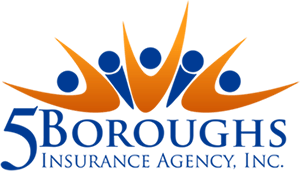Home, health, renter’s, auto or life insurance — don’t buy any of these policies without knowing the answers to these questions.
Insurance protects you from life’s calamities. You want to make sure you have the right coverage so an accident, illness, or other disaster doesn’t lead to financial ruin — but how exactly can you figure out what policy is the right one?
No matter what kind of insurance you’re buying — whether it’s health, home, auto, renter’s or life insurance — there are a few key things you should look at to be sure the coverage you’re getting is well-suited to meet your needs.
In particular, here are four key things you’ll want to know about any insurance policy you’re thinking about purchasing.
1. What are the premiums?
Insurance companies charge you for buying coverage. The charges you pay for your policy are called the premiums. Premiums may be charged monthly — which is common for health and auto insurance — or you may pay annually, which is more common for homeowners insurance coverage.
The amount of your premium is determined by many factors, including your deductible, coverage maximums, and the type of policy you’re buying. Typically, the more comprehensive your insurance coverage, the higher your premiums.
You’ll need to know what the premium cost is before you commit to an insurance policy and make sure you can afford to work the premiums into your budget. And weigh the trade-off you’re making. If you’re highly likely to use the coverage, it may be worth paying a higher premium to get your insurance to pay for more services — but if you’re unlikely to end up making a claim, you may want a skimpier insurance policy that offers you less protection but that costs less.
2. Is there a deductible?
Many types of insurance have a deductible, which is a set amount of money you have to pay for covered services or covered losses before your insurer pays out benefits. If you get into an accident and your auto insurance has a $500 deductible, for example, you’d be responsible for covering the first $500 in repair costs for your vehicle.
Sometimes, the policy will provide some coverage even if you haven’t yet met your deductible. Your health insurer may pay for preventative screenings if your deductible hasn’t been met, or your auto insurer may not apply the deductible to glass-only incidents and so may pay to repair or replace your windshield without your incurring any out-of-pocket expenses. And some policies, such as life insurance coverage, may have no deductible at all.
But it’s always important to find out if there is a deductible, how much it is, and what if anything your insurance will pay for. If your deductible is very high, you’d be on the hook for a big bill if you needed covered services, which could be hard for you to afford. If that’s the case, you may decide to try to lower your deductible — although this would usually result in higher premiums.
3. What’s your maximum coverage limit?
Most insurance policies have payout limits. If you buy life insurance, for example, your policy will pay a set death benefit but no more. Auto insurance will pay only for the costs of your car’s repairs or the vehicle’s fair-market value, and it will cover your liability for losses only up to policy limits if you cause a crash. And homeowners insurance also caps the coverage available to you based on the market value or replacement value of your covered home and possessions.
Health insurance, however, is the exception. Thanks to the Affordable Care Act, lifetime coverage limits on Obamacare-compliant insurance policies are no longer permitted. That means an insurer must pay for the covered care you need even if the policy has already paid out millions.
For any policy with maximum coverage limits, you need to know what the limitations are and make sure you have enough protection. If you have $25,000 in coverage and you cause an auto accident that results in millions of dollars in damages, you could personally be held liable for losses your insurance won’t cover.
4. What limitations on what’s covered apply to your policy?
In addition to the policy limits, it’s also important to read the fine print and find out what your policy excludes from being covered. For homeowners insurance, for example, you may have no coverage for floods, while your health insurance policy may not provide payment if you see an out-of-network doctor.
By closely reading the terms of any policy you’re considering, you can make sure that the coverage restrictions aren’t so extreme that you’re all but prevented from using the coverage at all.
Don’t buy insurance without making sure the policy is right for you
An accident or illness could devastate your finances or your family’s finances if you don’t have insurance on you, your home, your vehicles, or on your expensive possessions it would be too hard to replace. Always make sure you have protection for life’s big losses, as paying insurance premiums is well worth the investment to avoid hundreds of thousands or even millions of dollars in bills when the worst occurs.
Filed Under: Auto Insurance, Car Insurance, Health Insurance, Home Insurance, Homeowners Insurance, Insurance News
